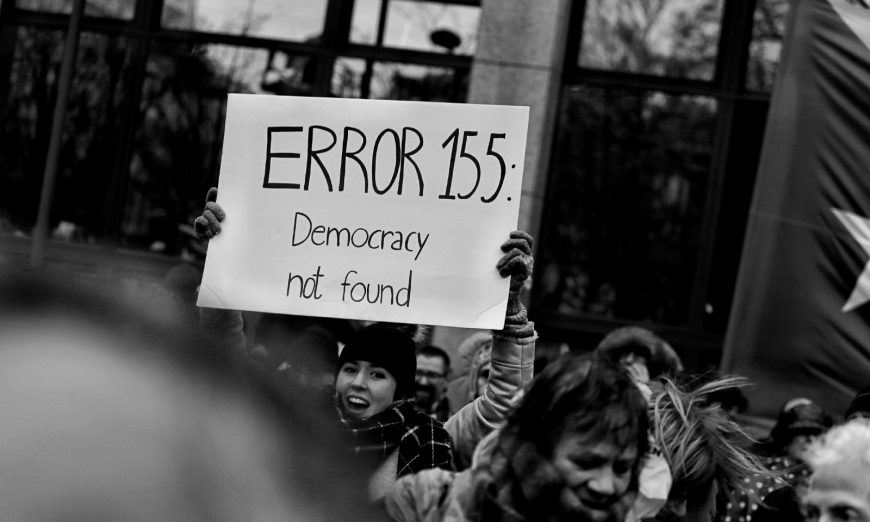The effective enjoyment of fundamental freedoms granted by domestic constitutions is the only reliable indicator of any country’s democratization status: All human liberties set forth by national charters connote a strict range of the state’s positive obligations toward its citizens, a series of duties to respect in order to comply with the democratic paradigm.
These essential requirements transform the role of the state into an active one: Beyond being bound to refrain from any interference therein, it also ought to engage in facilitating their complete fruition. Every stable democracy has to ensure the respect of basic human rights and provide the necessary tools of their fulfillment. Proceeding with the analysis of the civil rights situation in Turkey, stressing once again that few are the classic human rights that must be taken into account to rank a democracy, a further scrutiny of the provision set by Article 19 of the Universal Declaration of Human Rights (UDHR), freedom of expression (FoE), is indeed indispensable.
Freedom of the media and media pluralism
Moreover, as the jurisprudence of the European Court of Human Rights (ECtHR) has frequently stated, FoE “constitutes one of the essential foundations of a democratic society, one of the basic conditions for its progress and for each individual’s self-fulfillment.”
Its primacy as an individual human right, as well its relevance as a founding principle in determining and advancing democracy within and outside of a state, has allowed the European judicial body to develop an extensive case law for its protection. Thanks to this legal enforcement, subjects not directly covered by the clause, such as the media and the press, are now also entitled to FoE with a subsidiary protection under the scope of Article 10 of the ECHR, by virtue of their incisive function for democratic progress.
The sensitive role carried out by independent media can be summarized in three main actions: participating in a debate over the public sphere, providing information to citizens regarding recent government decisions and guaranteeing the administration’s transparency.
Therefore, freedom of the press and the media are remarkably safeguarded, not only by international treaties but also by domestic laws. In Turkey, freedom of the press is ensured in the Constitution: by Article 22 (addressing freedom of communication), Article 26 (addressing FoE) and specifically by Article 28 (addressing freedom of the press), as well as by Law No. 5187, the Press Law. Both Article 28 of the Constitution and Article 3 of the Press Law state that the press should benefit from independence and autonomy, as well as from the right to collect and disseminate information, the right to criticize, and the right not to be censored. These rights, covered by the provision of Art. 19 ICCPR (FoE), represent responsibilities that any democracy has in protecting fundamental freedoms: not only is the state is requested to refrain from violating them (negative obligation), but it also has a duty to take ad-hoc measures in order to secure their effective enjoyment (positive obligation).
Nonetheless, the rights of the media are exposed to constant nonobservance and constriction. The escalation of this war dates back, again, to the Gezi Park events of the summer of 2013. Media coverage of the protests was harshly censored and later resulted in the unfair dismissal of 22 journalists and the forced resignations of 37 other professionals, according to the Turkish Journalists Union (TGS).
In late 2014, on Dec. 14, another operation against media and media pluralism caused concerned reactions within the European Union, the Council of Europe (CoE) and the Organization for Security and Cooperation in Europe (OSCE). A raid, in which prominent figures of national journalism were arrested, produced an immediate reaction within the EU. On the same day, the European Commission (EC) issued a joint statement against the operation, addressing the importance of media freedom as a core principle of democracy.
Resolution 2014/3011(RSP)
The first weeks of September have brought to public attention an involution on media freedom rights, and on an antagonistic and independent press. The police operation against the İpek Media Group received strong criticism from Nils Muiznieks, the CoE’s commissioner for human rights, who reminded the Turkish government of its commitment to protect democracy and pluralistic values.
Four reporters — a three-man group from the international Vice News media organization and the independent Dutch journalist Frederike Geerdink, were arrested while covering the clashes in the Southeast, accused of supporting terrorist organizations. The foreign correspondents were later deported, but Mohammed Ismael Rasool, the Iraqi member of the Vice News team, is still imprisoned in an F-type high-security anti-terror prison.
Lastly, the offices of the Hürriyet daily were violently attacked by civilians using stones and clubs.
It is worth remembering that the ECtHR already stressed in two separate judgments (Özgür Gündem vs. Turkey and Dink vs. Turkey) the existence of a positive obligation for the state to create a favorable environment for all persons involved to participate in public debate, giving them the ability to express opinions and ideas freely, without being encumbered by self-censorship or fear.
At a time when the country is heading toward its second general election in less than six months, it is also worth remembering the core function of journalism: to inform its audience of current and possible future situations, and to provide the electorate with the chance to weigh and choose the future composition of the government. The grip on the media that began at the end of 2014 is threatening freedom of the media and of the citizenry, violating the foundations of democracy.
*Roberto Frifrini
Source: Today’s Zaman

